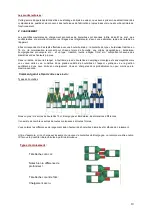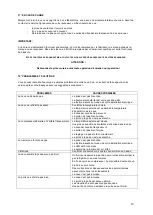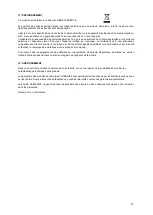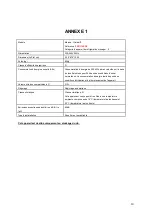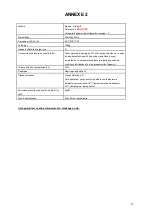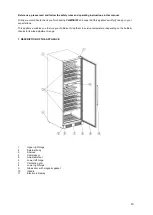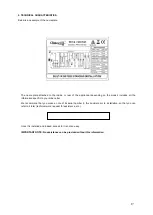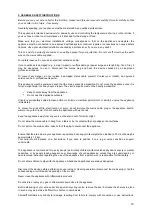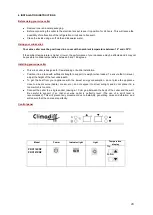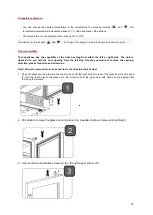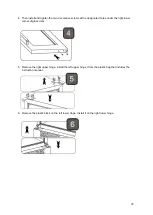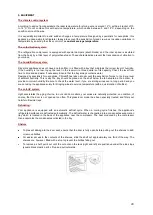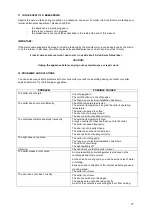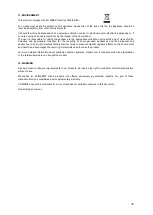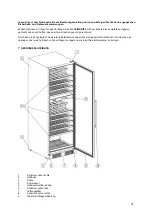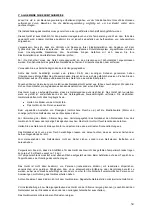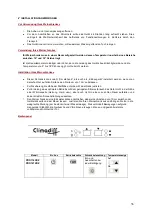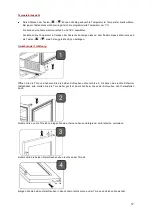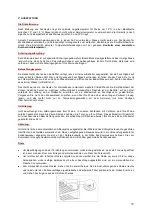
24
5. EQUIPMENT
The climate control system
According to advice from specialists, the ideal temperature for storing wine is around 12°C, within a bracket of 10
to 14°C. Do not confuse this with service temperature, which varies between 5 and 18°C, depending on the
specific nature of the wine.
It is especially important to avoid sudden changes in temperature. Designed by specialists for oenophiles, this
appliance, unlike a simple refrigerator, takes into account the sensitivity of grand cru wines to sudden variations in
temperature by ensuring the close control of a
constant average temperature
.
The anti-vibration system:
The refrigeration compressor is equipped with special dampers (silent-blocks) and the inner space is insulated
from the body by a thick layer of polyurethane foam. These characteristics prevent the transmission of vibration to
your wines.
The humidification system:
Since this appliance does not have a carbon filter, it is fitted with a tray that maintains the correct level of humidity.
If the humidity is too low, top up the level in the reservoir to three quarters of its capacity. Check the level from
time to time and add water if necessary. Ensure that the tray always contains water.
Designed by specialists for oenophiles, Climadiff has taken into account the sensitivity of corks to too low a level
of ambient humidity. This is why the tray should be placed on the shelf below the fan situated in the bottom, to
provide minimum humidity. Be sure to check the water level, if you are storing wines over a long period and you
are not using the appliance solely for bringing wines to service temperature (with a quick rotation of bottles).
The anti-UV system:
Light accelerates the aging of wine. In our solid door cellars, your wines are naturally protected, on condition, of
course, that the door is not opened too often. This glass-door model has been specially treated and filters out
harmful ultraviolet rays.
Defrosting:
Your appliance is equipped with an automatic defrost cycle. Wh
en a cooling cycle finishes, the appliance’s
refrigerated surfaces are defrosted automatically. The defrost water is channelled into a condensates evaporation
tray which is located in the back of the appliance near the compressor. The heat produced by the compressor
then evaporates the condensates collected in the tray.
Shelves
To prevent damage to the door seal, ensure that the door is fully open before pulling out the shelves to add
or remove bottles.
For easier access to the contents of the shelves, slide the shelf out approximately one third of the way. The
shelves are, however, fitted with a stop to prevent the bottles falling out.
To remove a shelf: pull it out until the cut-outs on the rack (right and left) are positioned under the side stops
(square black plastic part). Lift up and pull outwards.

